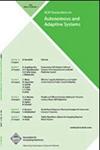自组织公共池资源管理的分配公正
IF 2.1
4区 计算机科学
Q3 COMPUTER SCIENCE, ARTIFICIAL INTELLIGENCE
引用次数: 45
摘要
在这篇文章中,我们用Nicholas Rescher基于合法主张的分配正义理论来补充Elinor Ostrom关于持久公共资源管理的制度设计原则。奥斯特罗姆的两个原则是资源分配方法应与当地环境相一致,以及受分配方法影响的人(占有者)应参与分配方法的选择。然而,这些原则并没有明确说明分配方法的公平性或其产生的结果:为此,我们需要一种分配正义的机制。Rescher确定了许多不同的机制,每一种机制都有其优点和缺点,相反,他坚持认为分配正义包括在背景中识别合法的要求,在多元化的情况下容纳多种要求,在冲突的情况下调和它们。因此,我们指定了具有合法要求标准的原则的逻辑公理化,其中一组要求被表示为一个投票函数,它们共同决定了资源分配的等级顺序。分配者对附加在评分函数上的权重进行投票,从而自组织分配方法,同时考虑权利要求的多元性和权利要求之间的冲突。因此,占用者对方法进行集体选择,并且方法本身符合当地环境,同时考虑到可用资源和占用者的相对要求。对线性公共物品博弈的一种变体进行的实验表明,与一元论或固定方法相比,这种多元自组织方法可以更好地平衡效用和公平性(对于遵守游戏规则的代理),提供“随着时间的推移的公平性”(一系列表面上不公平的个人分配被揭示为累积公平),并提供如何解决公共资源提供和分配中的搭便车现象的直觉。本文章由计算机程序翻译,如有差异,请以英文原文为准。
Distributive Justice for Self-Organised Common-Pool Resource Management
In this article, we complement Elinor Ostrom’s institutional design principles for enduring common-pool resource management with Nicholas Rescher’s theory of distributive justice based on the canon of legitimate claims. Two of Ostrom’s principles are that the resource allocation method should be congruent with the local environment, and that those affected by the allocation method (the appropriators) should participate in its selection. However, these principles do not say anything explicitly about the fairness of the allocation method or the outcomes it produces: for this, we need a mechanism for distributive justice. Rescher identified a number of different mechanisms, each of which had both its merits and demerits, and instead maintained that distributive justice consisted in identifying the legitimate claims in context, accommodating multiple claims in case of plurality, and reconciling them in case of conflict. Accordingly, we specify a logical axiomatisation of the principles with the canon of legitimate claims, whereby a set of claims is each represented as a voting function, which collectively determine the rank order in which resources are allocated. The appropriators vote on the weight attached to the scoring functions, and so self-organise the allocation method, taking into account both the plurality of and conflict between the claims. Therefore, the appropriators exercise collective choice over the method, and the method itself is congruent with the local environment, taking into account both the resources available and the relative claims of the appropriators. Experiments with a variant of the linear public good game show that this pluralistic self-organising approach produces a better balance of utility and fairness (for agents that comply with the rules of the game) compared to monistic or fixed approaches, provide “fairness over time” (a series of ostensibly unfair individual allocations is revealed to be cumulatively fair), and offer an intuition of how to resolve the free-rider phenomenon in provision and appropriation of common-pool resources.
求助全文
通过发布文献求助,成功后即可免费获取论文全文。
去求助
来源期刊

ACM Transactions on Autonomous and Adaptive Systems
工程技术-计算机:理论方法
CiteScore
4.80
自引率
7.40%
发文量
9
审稿时长
>12 weeks
期刊介绍:
TAAS addresses research on autonomous and adaptive systems being undertaken by an increasingly interdisciplinary research community -- and provides a common platform under which this work can be published and disseminated. TAAS encourages contributions aimed at supporting the understanding, development, and control of such systems and of their behaviors.
TAAS addresses research on autonomous and adaptive systems being undertaken by an increasingly interdisciplinary research community - and provides a common platform under which this work can be published and disseminated. TAAS encourages contributions aimed at supporting the understanding, development, and control of such systems and of their behaviors. Contributions are expected to be based on sound and innovative theoretical models, algorithms, engineering and programming techniques, infrastructures and systems, or technological and application experiences.
 求助内容:
求助内容: 应助结果提醒方式:
应助结果提醒方式:


